MLA+U Fall
- Johann Friedl •
- Krista Dawson •
- Sergio Sedano •
- Sawyer Knuteson •
- Davey Hines •
- Vrittany Salais •
- Zhihan Yang
LA 541 LANDSCAPE ARCHITECTURE STUDIO I : PROCESSES
The first course in the M.L.A.+U. program studio sequence creates a framework to embrace core tools of the discipline of landscape architecture. This studio explores dynamic conditions defining spaces investigated through research, physical site visits, abstraction, and critical intervention. Participants develop an understanding of the fundamental relationships of dynamic processes with an emphasis on representing time, movement, space, light, rhythms, shifting boundaries, and physical materials of landscape.
Studio participants conducted investigations of landscape processes and public spaces stemming from the North Branch of the Chicago River. Design exercises reimagined an abandoned rail line in Chicago’s LaBagh Woods, a Forest Preserves of Cook County property, at the intersection of the Chicago River and an oak savannah currently under restoration.
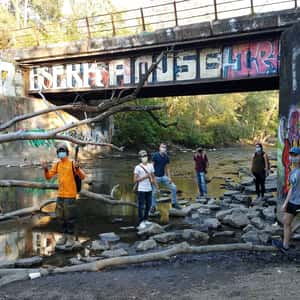
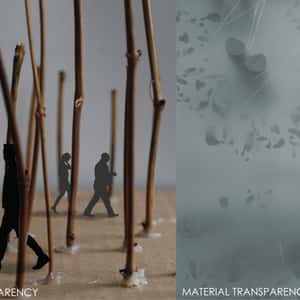
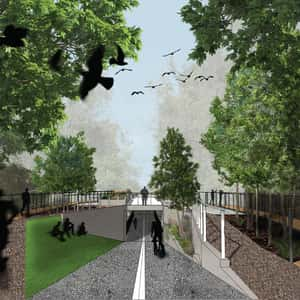
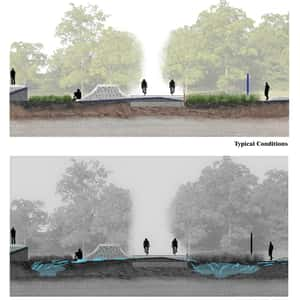
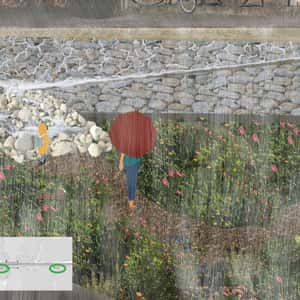
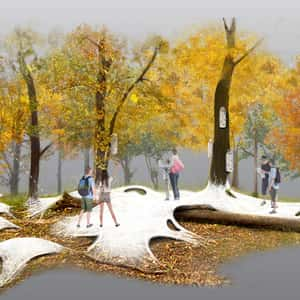
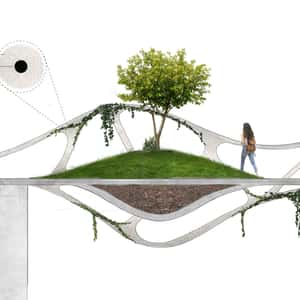
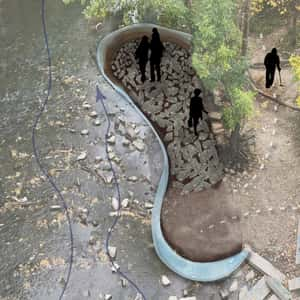
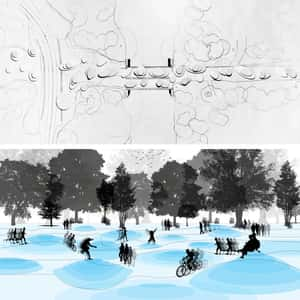
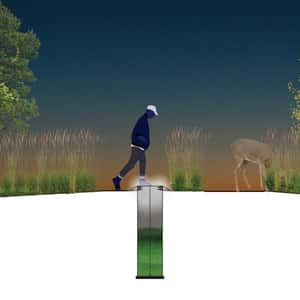
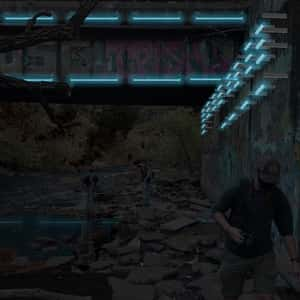
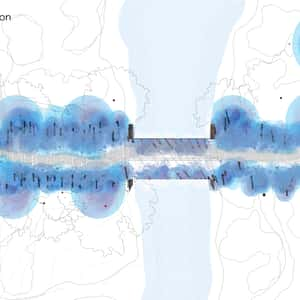

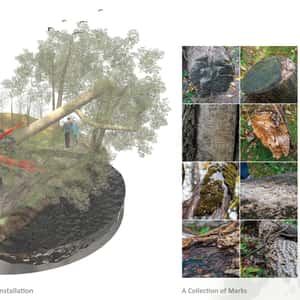
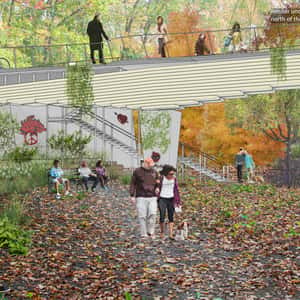
- Meg Schroeder •
- Jessie Flatley •
- Rocio Ruiz
LA 543 Landscape Studio III : Comprehensive Landscape Architecture, In the Mecca
We think about this project as a 'Working Memorial" on Illinois Institute of Technology’s Mies Campus that, in its concepts, design and evolving forms, invites collective engagement and participation, responsiveness and memory-work. It is a working site of memory, and a place of exception for present and future generations engaging them in a dialogue with events, with the past and the future. As a path towards healing it is a public place of exception that can act as a reminder of the community's commitment, in this day and age and for future generations, to remember this place.
Sit where the light corrupts your face.
Mies Van der Rohe retires from grace.
And the fair fables fall.
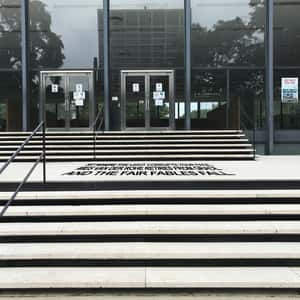
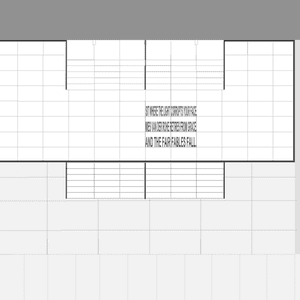
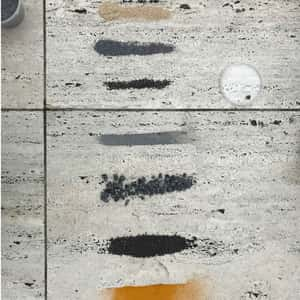
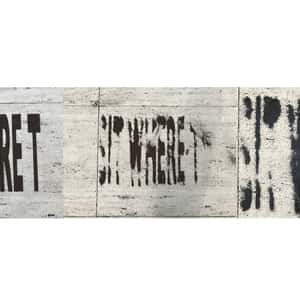
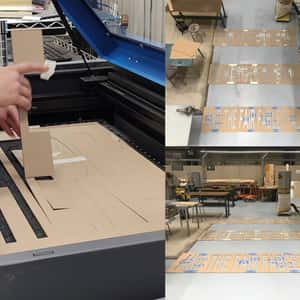

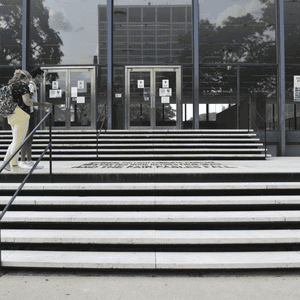
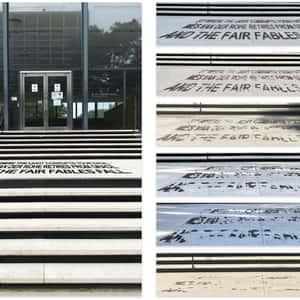
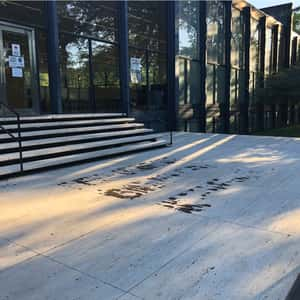
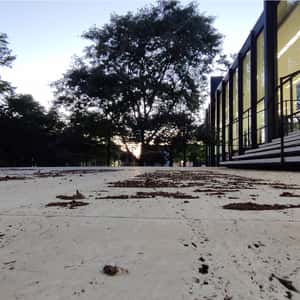
- David Paredes •
- Krista Dawson •
- Sawyer Knuteson •
- Hans Friedl
LA 525 : Design Media I, Drawing and Modeling the Landscape
This is the first in a sequence of representation courses in the Master of Landscape Architecture program that aims to provide a foundational understanding of the visual vocabulary of landscape architecture. At the core of this course is an intent to collapse the boundaries between landscape, architecture, and art as singular entities and instead develop an understanding that the art and science of visual representation and observation across the design disciplines have shared identities grounded in the fundamentals of representing objects, space, time, and process.
Students explored, tested and analyzed methods that shape this body of knowledge, developing a capacity to organize data, analyze information, draw space, represent change, and model futures.
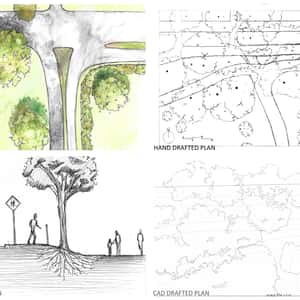
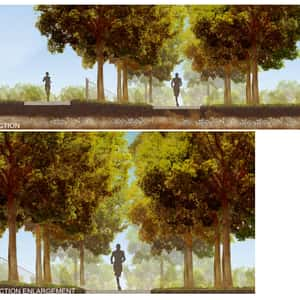
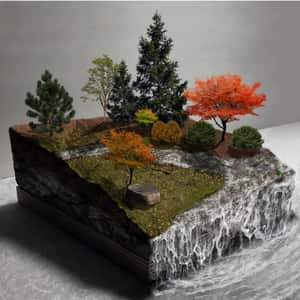
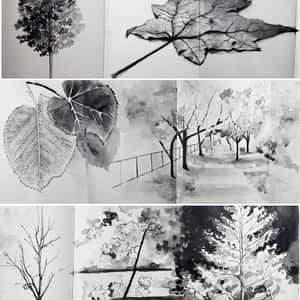
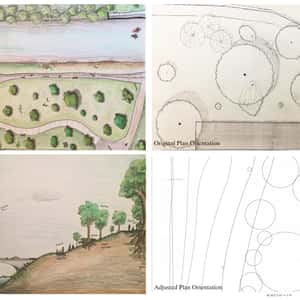
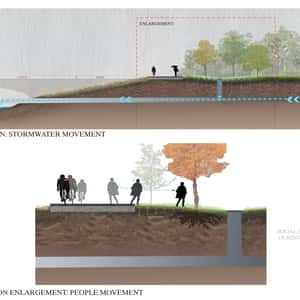
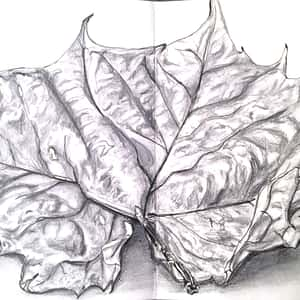
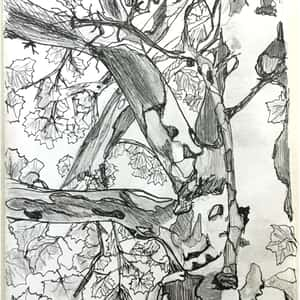
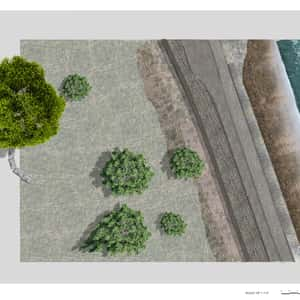
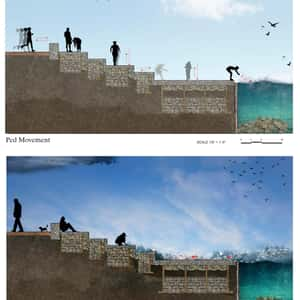
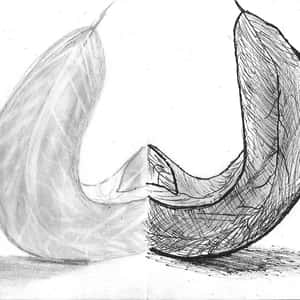
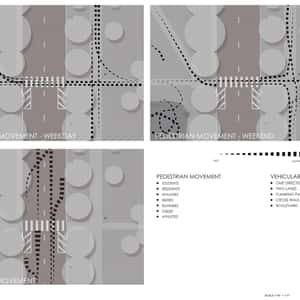
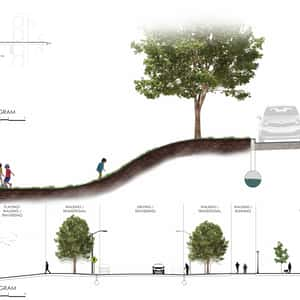
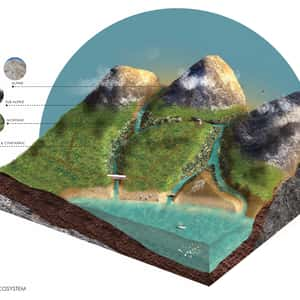
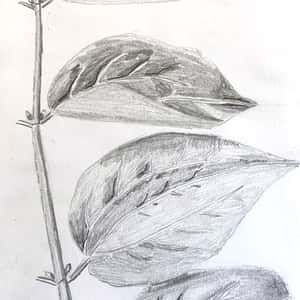
- Jessie Flatley •
- Rocio Ruiz •
- Davey Hines •
- Nick Myers •
- Howard Zhang •
- Meg Schroeder
LA 527 : Design Media III, Advanced Modeling and Fabrication
Using video to explore landscape representation, students created visual narratives to bring to life a significant landscape from their memory. Students captured their own footage and used found footage to tell their stories.






- Goff Spencer •
- Knuteson Sawyer
LA 501 : THE NATURAL HISTORY OF CITIES
Inquiry into the texts and projects of contemporary landscape architecture situated within a framework of historical and canonical texts and projects.
Let us consider only this question: how does the site, once it has been determined, influence the individual and the collective? This question interests me here in the ecological sense of Maximilien Sorre: That is, how does the environment influence the individual and the collective?


- Vrittany Salais •
- Howard Zhang •
- Jessica Flatley •
- Meg Schroeder •
- Rocio Ruiz
ARCH 504 : Landscape Architecture Research Seminar, The Driverless City
This seminar focused on the advanced study of landscape architecture topics with emphasis on research methods, description, analysis, and criticism. Participants built research skills to further the discourse of urban development alongside rising access to autonomous vehicles on city streets. Exploring scenario-based planning methods, students visualized futures for the Illinois Institute of Technology campus and the greater city.
Participants collaborated with engineering and robotics researchers at Illinois Institute of Technology to reveal patterns in GPS signal strength under canopy tree foliage in public spaces. Based on latest findings during in-class data collection and modeling by the research teams, locations for landmarks to aid autonomous vehicle navigation along Chicago's State Street were identified. Course participants analyzed mechanical operations of the existing palette of street furnishings including bicycle racks, waste receptacles, tree planters, and bus shelters. These indispensable elements of public streets were calibrated to serve pedestrians while adopting shapes and materials found to easily register by autonomous vehicles as landmarks.
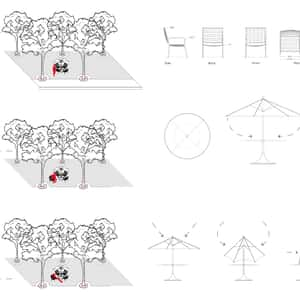
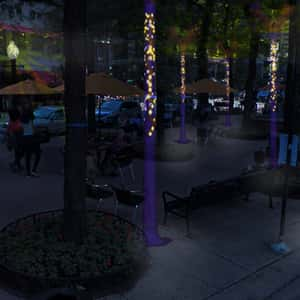
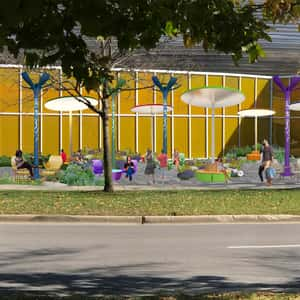
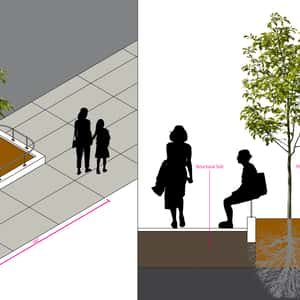
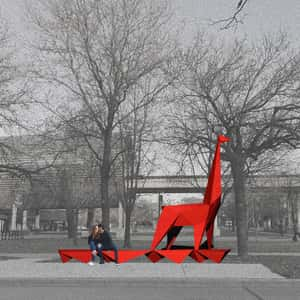
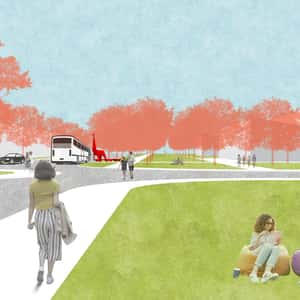
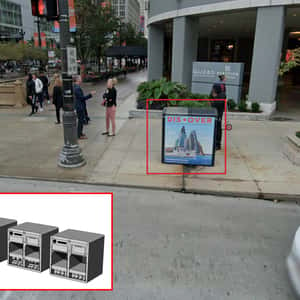
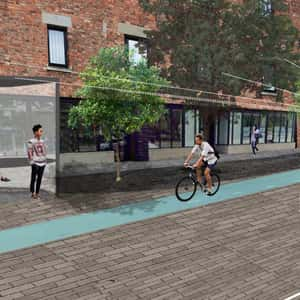
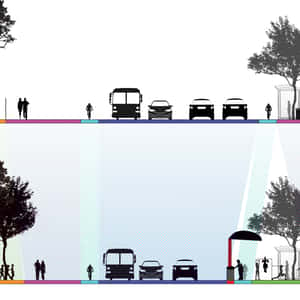
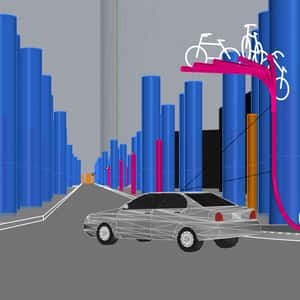
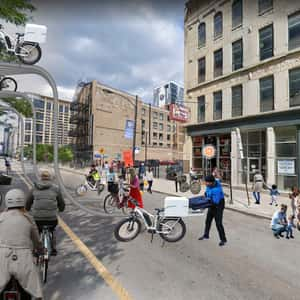
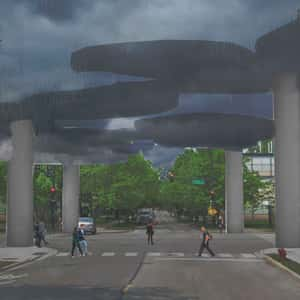
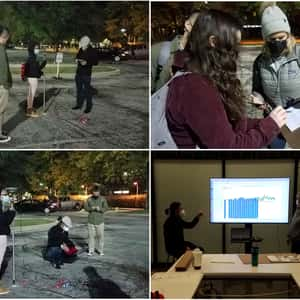
- Hans Friedl •
- Sergio Sedano •
- Arwa Ahmed
LA 565 : Ecology and Materials I, Plants and Planting
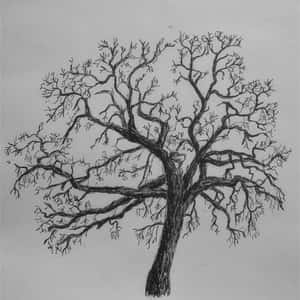
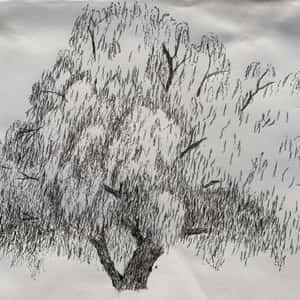
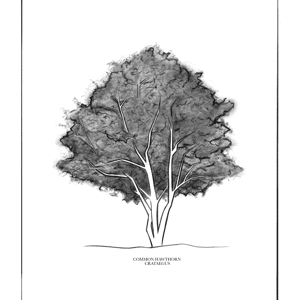
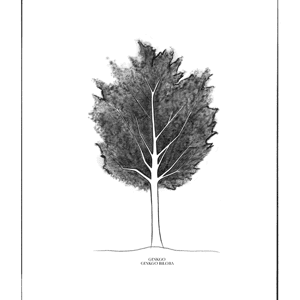
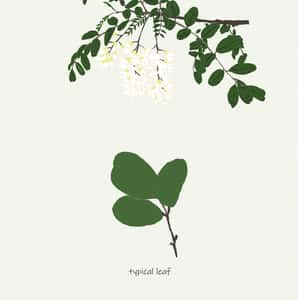
ARCH 567 : Ecology and Materials III, Horticulture
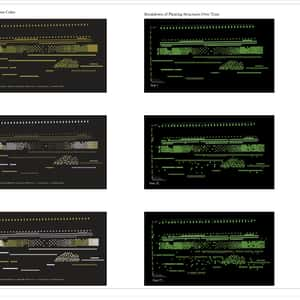
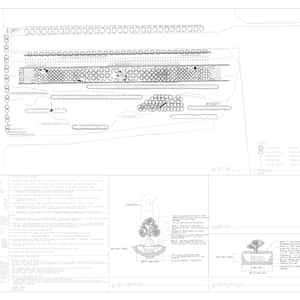
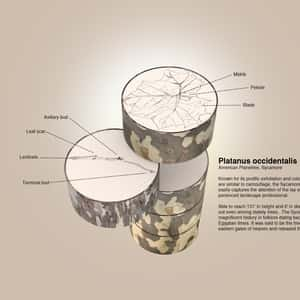
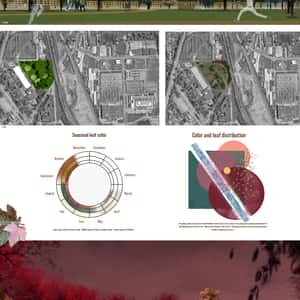
MLA+U Spring
- Davey Hines •
- Jingwei Guan •
- Johann Friedl •
- Krista Dawson •
- Sawyer Knuteson •
- Sergio Sedano •
- Tatiana Guider •
- Yeliz Otkiran •
- Zhihan Yang •
- Vrittany Salais
LA 542 Landscape Architecture Studio II : Site and City
This studio focused on the continued development of the core tools of the discipline of landscape architecture focusing on the twenty-first century city through the exploration of a single 13.5-acre post-industrial site along the Collateral Channel in Chicago’s Little Village neighborhood. The studio investigated water systems at the city, site, and material scales, iterated a broad spectrum of frameworks for the site, and culminated in the development of individual propositions for the Collateral Channel. Throughout the design process, students were encouraged to utilize digital modeling and workflows to rapidly iterate upon and communicate their design intent.
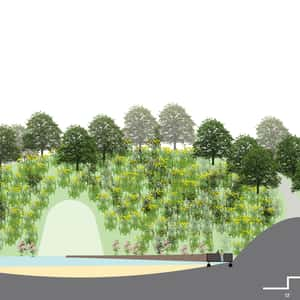
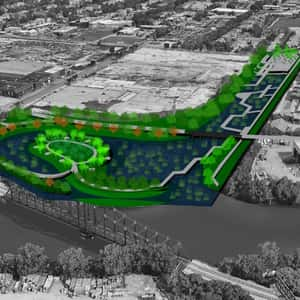
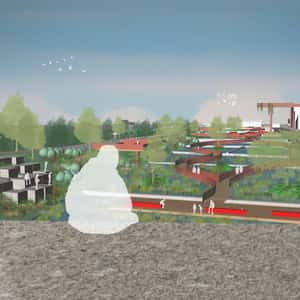
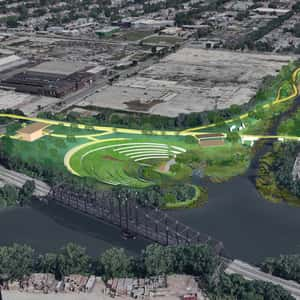
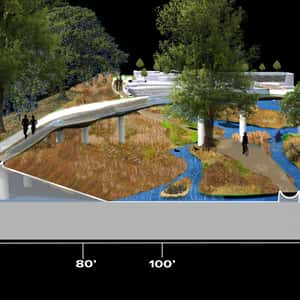
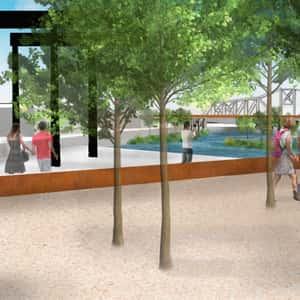
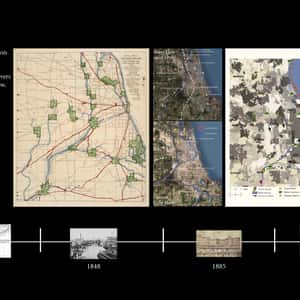
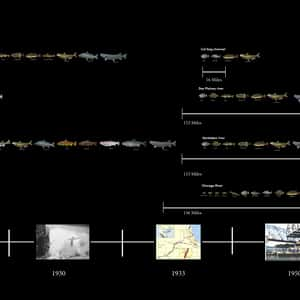
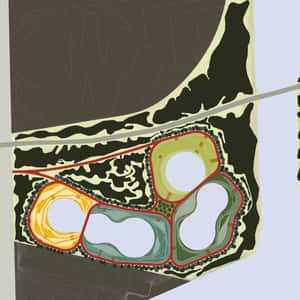
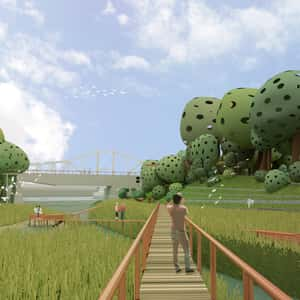
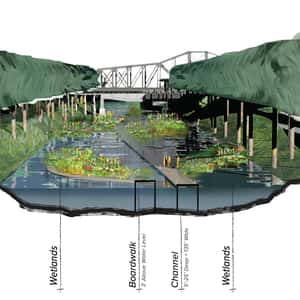
- Davey Hines •
- Jessica Flatley •
- Jingwei Guan •
- Johann Friedl •
- Krista Dawson •
- Rocio Ruiz •
- Sawyer Knuteson •
- Sergio Sedano •
- Vrittany Salais •
- Yara Alharthi •
- Yeliz Otkiran •
- Zhihan Yang
ARCH 544 Landscape Architecture Studio IV : Site, City, Region
This studio continued the development of landscape architecture as a multi-scale framework for designing dynamic urban processes and sites. Coursework emphasized research and design strategies that focused on the region as an analytical lens for site-specific design.
The studio explored the contributions that landscape systems and designed spaces make to evolving conditions of building demolition and land use along the Chicago Parks and Boulevard System. Participants contemplated how formal and programmatic recalibration within the system and adjacent urban spaces can contribute to an equitable twenty-first century city. Students investigated urban infrastructure networks and public space typologies before developing design interventions centering on a segment of the Chicago Parks and Boulevard System located in the North Lawndale neighborhood of Chicago.
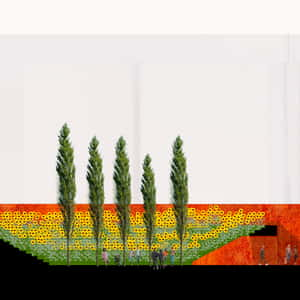
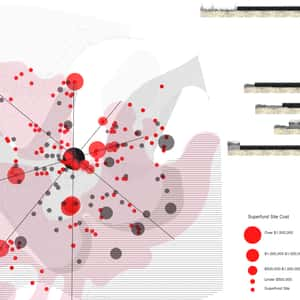
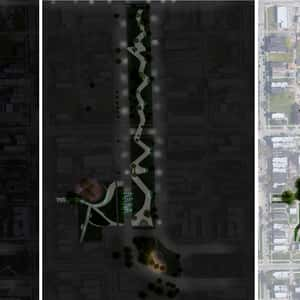
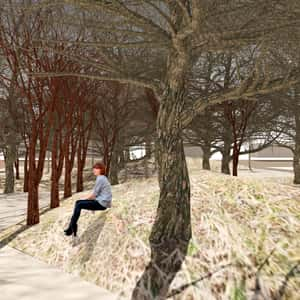
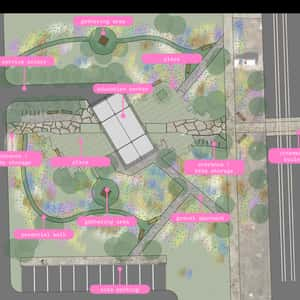
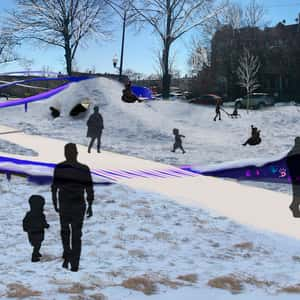
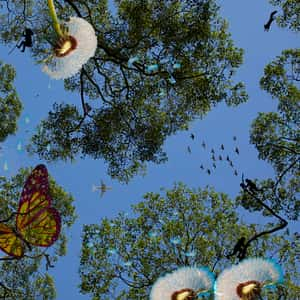
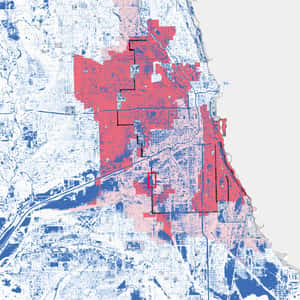
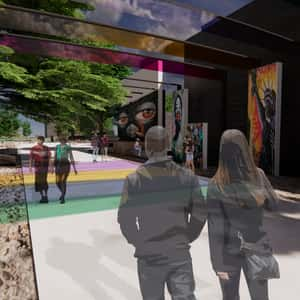
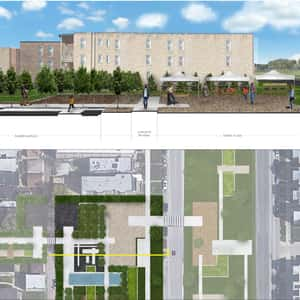
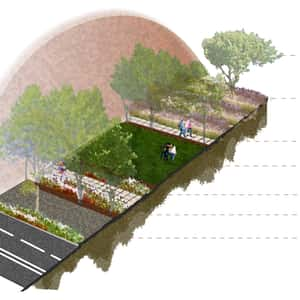
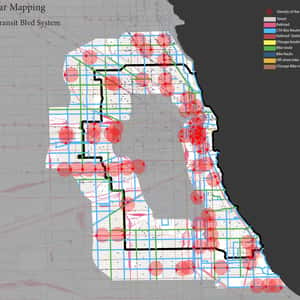
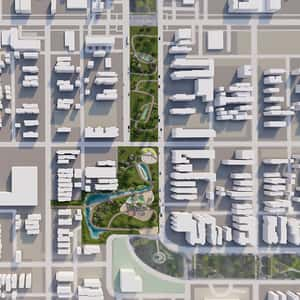
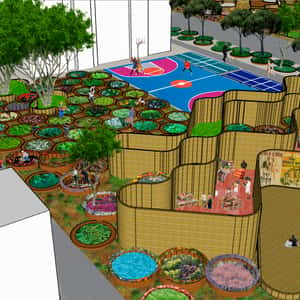
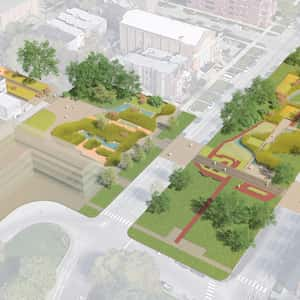
- Licol Ke •
- Ben Jensen •
- Courtney Curcio •
- Jing Yao •
- Kaihao Xu •
- Yakun Wang
LA 546 : Advanced Studio
This studio is an exploration to construct a sequence of spaces using historic salvaged material that integrates local ecologies and neighborhood social structure with ephemeral, semi-permanent, and permanent site interventions for sites of historic significance. The components of revitalization work are the materials of construction: 10,000 large bricks from the Ming Dynasty at Qinliangshan, and archaeological traces at the historic Guanyao Imperial Brick Kilns just outside the Chinese city of Nanjing.
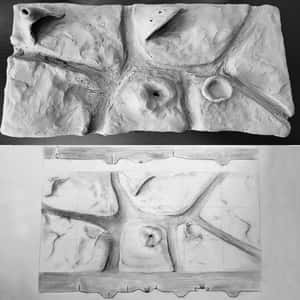
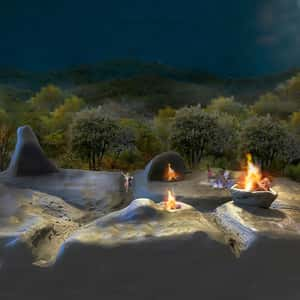
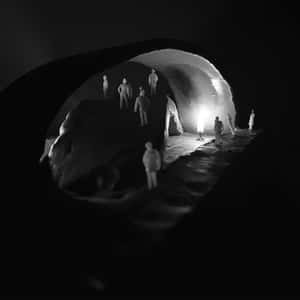
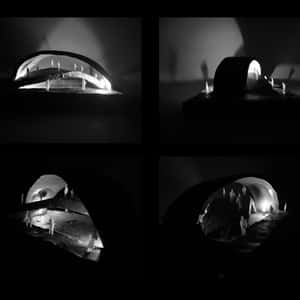
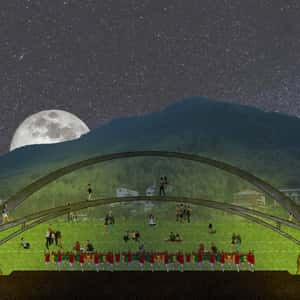
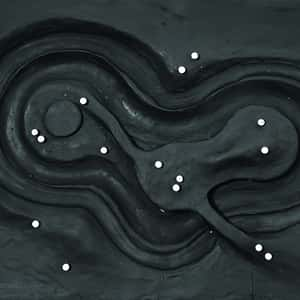
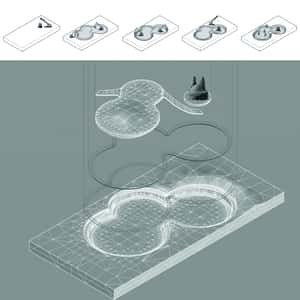
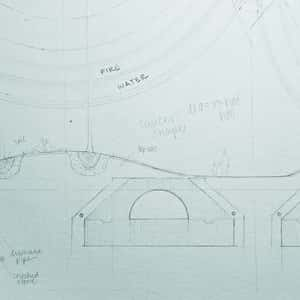
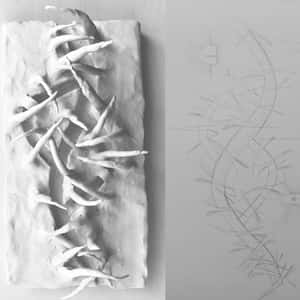
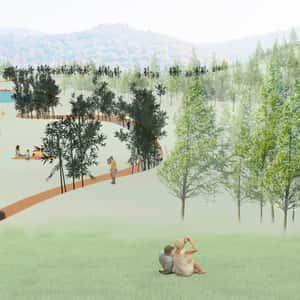
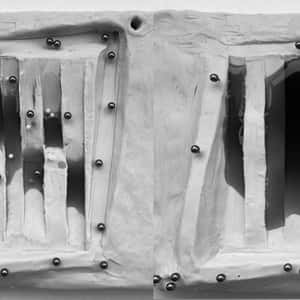
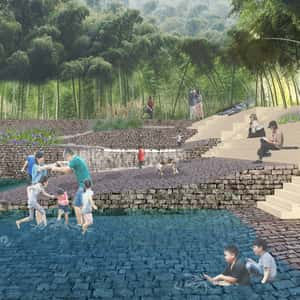
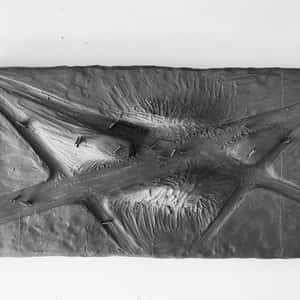
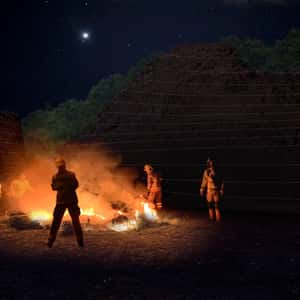
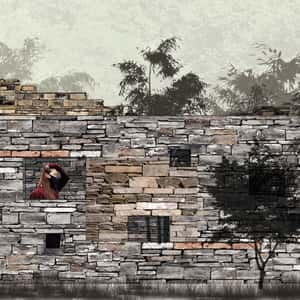
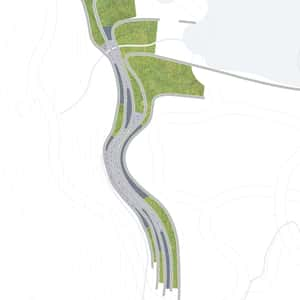
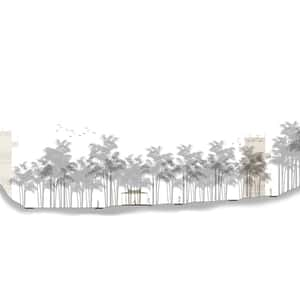
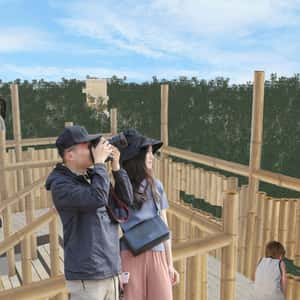
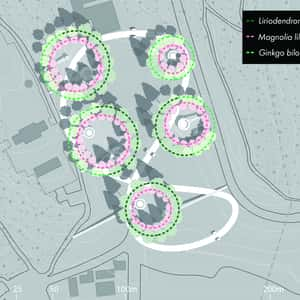
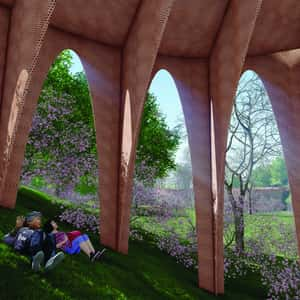
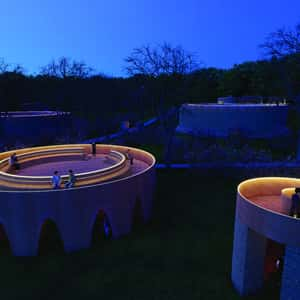
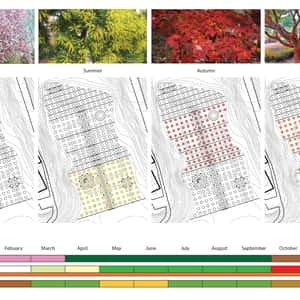
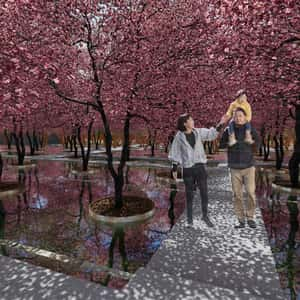
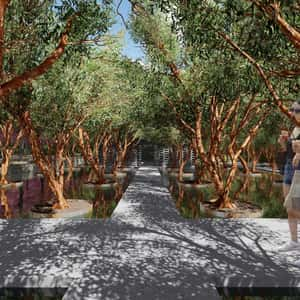
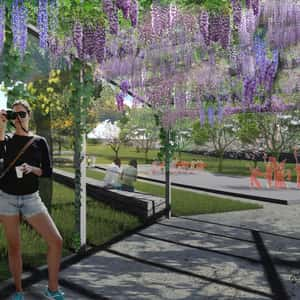
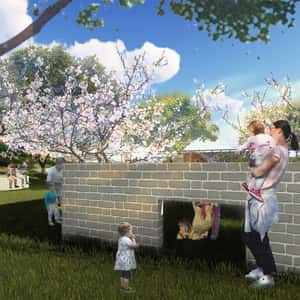
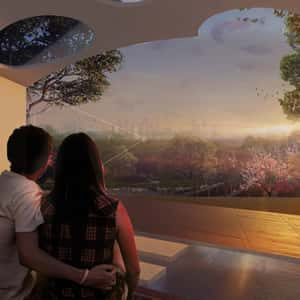
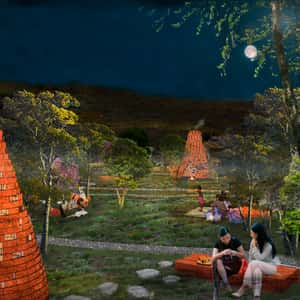
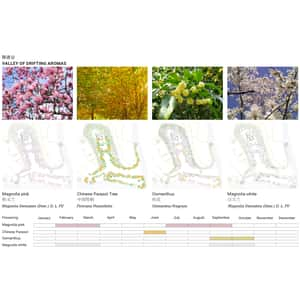
- Hans Friedl •
- Krista Dawson •
- Sawyer Knuteson
ARCH 526 : Design Media II
Urban landscapes are dynamic agents of change at the intersection of infrastructure and the built environment, biological processes, and human use. Representational clarity of these landscapes spans somewhere between the physical description of site and unseen ephemeral processes. At its core, this course seeks to develop a critical capacity to see, analyze information, represent change, and model futures. Students will generate diagrams, maps, models, sections, and perspectives to document spaces through the lens of built landscape design precedents.
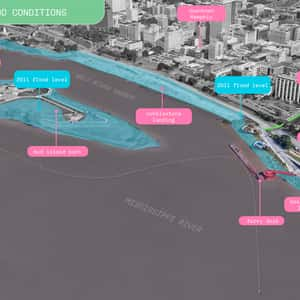
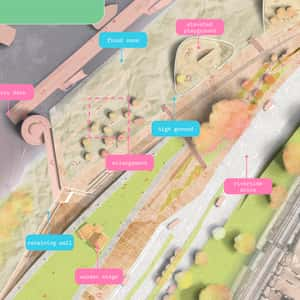
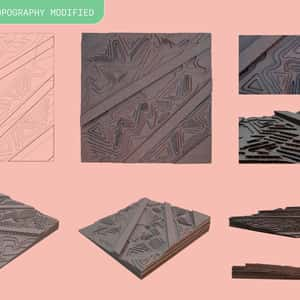
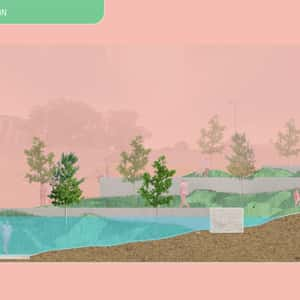
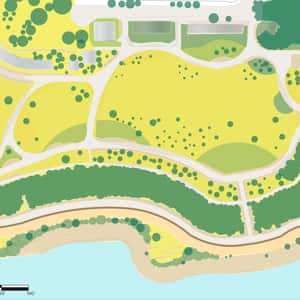
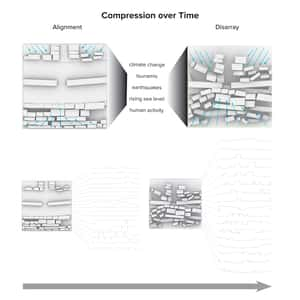
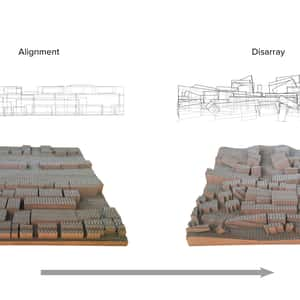
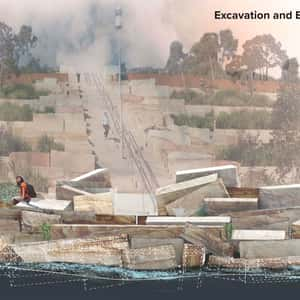
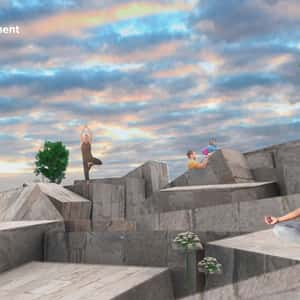
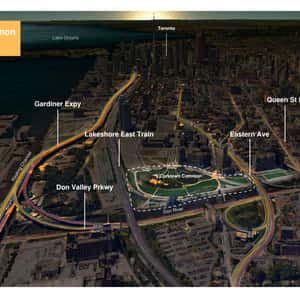
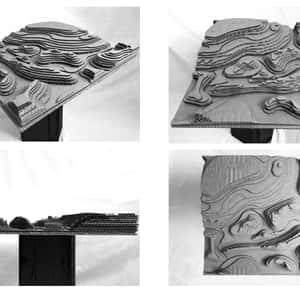
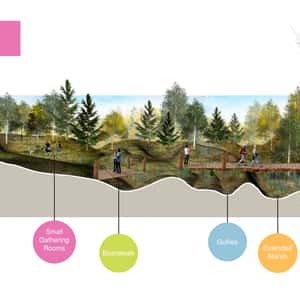
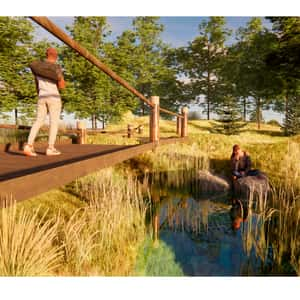
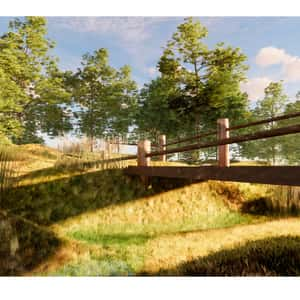
- Yara Taha •
- Lakshmi •
- Tekumalla •
- Aamina Sheikh •
- Hayden Regina •
- Jingwei Guan •
- Naya Ganama
LA 497 : Sightscapes
The class begins with the premise that "landscape is a way of seeing the world." It undertakes a broad study of the landscape in art, as well as art in the landscape; with readings in art history, aesthetic theory, and technology studies focused on a consideration of conventions, techniques and practices of landscape representation in the Western and non-Western traditions. Seminar participants investigated pertinent architects, artists, photographers, filmmakers and writers whose practices confront the multi-layered concept of landscape. Using contemporary media, students produced works that take on the challenge that, according to landscape architect James Corner, "there are […] phenomena unique to the medium of landscape […] that evade reproduction in other art forms."






